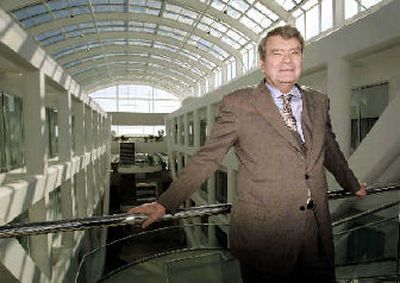EDS halts slide, but can’t grow

PLANO, Texas — The sigh of relief was palpable last week at the headquarters of Electronic Data Systems Corp. when word arrived that the company’s biggest customer was signing up for five more years.
Analysts thought EDS would lose most of its business running the computer systems of General Motors Corp. So when GM awarded EDS contracts worth $3.8 billion over the next five years, EDS executives were able to claim victory even though it’s less than EDS has been getting from the auto maker.
Rushing to explain the significance of the moment, several analysts struck a similar note. They said the GM deal shows that a three-year turnaround campaign at EDS is finally taking hold. The company has patched up money-losing contracts, shored up its balance sheet and is competing again for clients who once steered clear of EDS, the analysts said. But they also warned that EDS needs to do more to grow new businesses.
“A lot of the obvious problems have been fixed, and management has instilled some discipline in the company,” said Rod Bourgeois, an analyst with Sanford C. Bernstein & Co.
EDS is scheduled to report its final 2005 results on Wednesday. If analyst forecasts are correct, it earned nearly twice as much last year as it did in 2004. The company continues to recover from the depths of 2003, when it lost $1.7 billion. It has recorded four straight profitable quarters, and new contract signings are up.
“The company is essentially turned around,” Chairman and Chief Executive Michael H. Jordan confided shortly after GM’s announcement.
Analysts say, however, that it’s too soon for Jordan to run victory laps around the EDS campus — which, fittingly, is shrinking after the company sold part of its real estate.
Revenue has been slipping for three years, and net profit margins are around 1 percent, razor-thin for a $20 billion enterprise. Maybe most troubling: EDS’ core business is mature and slow-going, and the company faces intense competition to expand into new areas.
“We have a very strong balance sheet,” Jordan said. “We should be using it to supplement our growth.”
Back-office work makes up about 12 percent of EDS revenue now, but company officials insist they can double that in a couple years.
The problem is, several other companies are aggressively seeking the same hot areas, including Accenture Ltd., Mellon Financial and Hewitt Associates Inc.
“It’s a lot of competition in a relatively small market,” said Bourgeois, the Bernstein analyst, “and it’s unclear how profitable it’s going to be.”